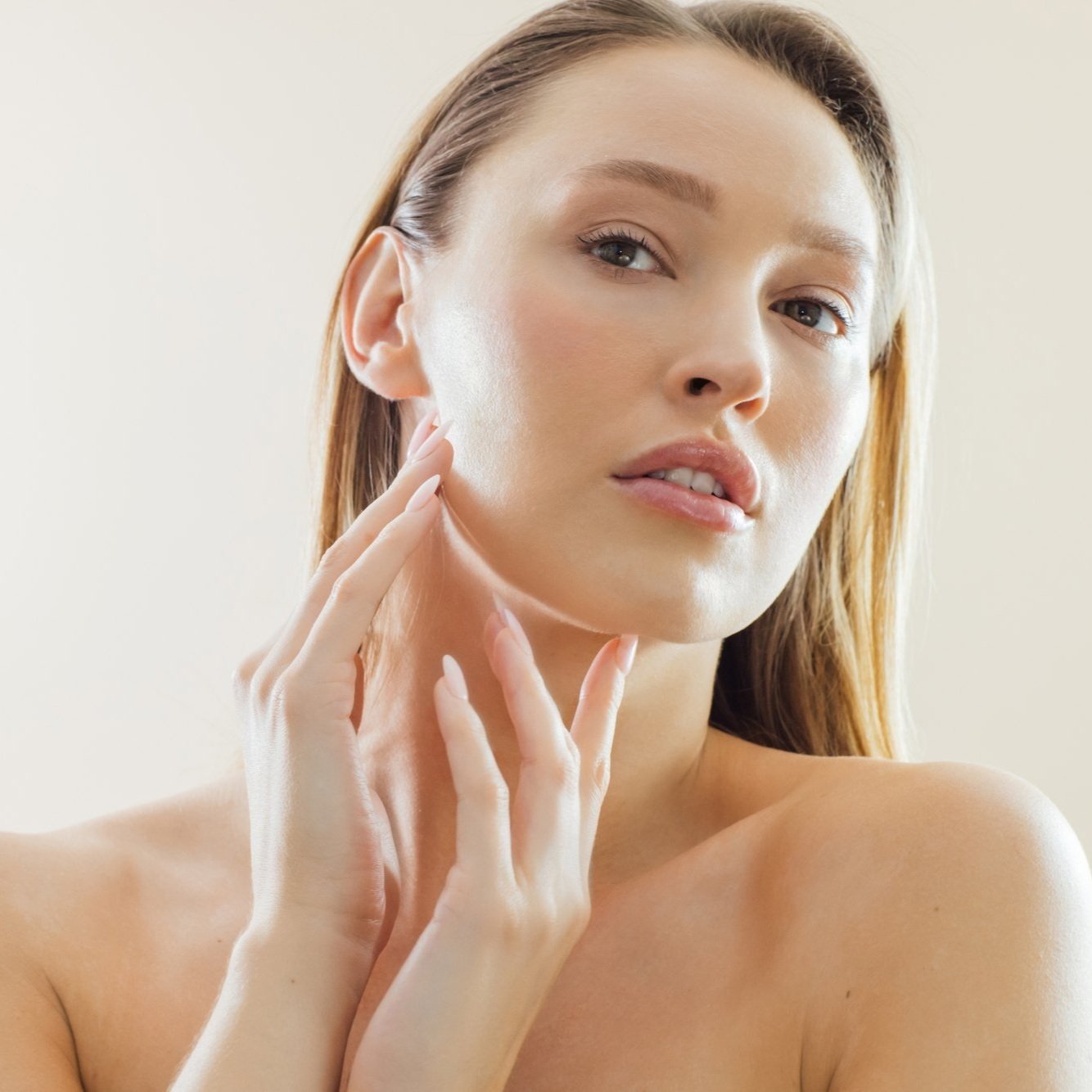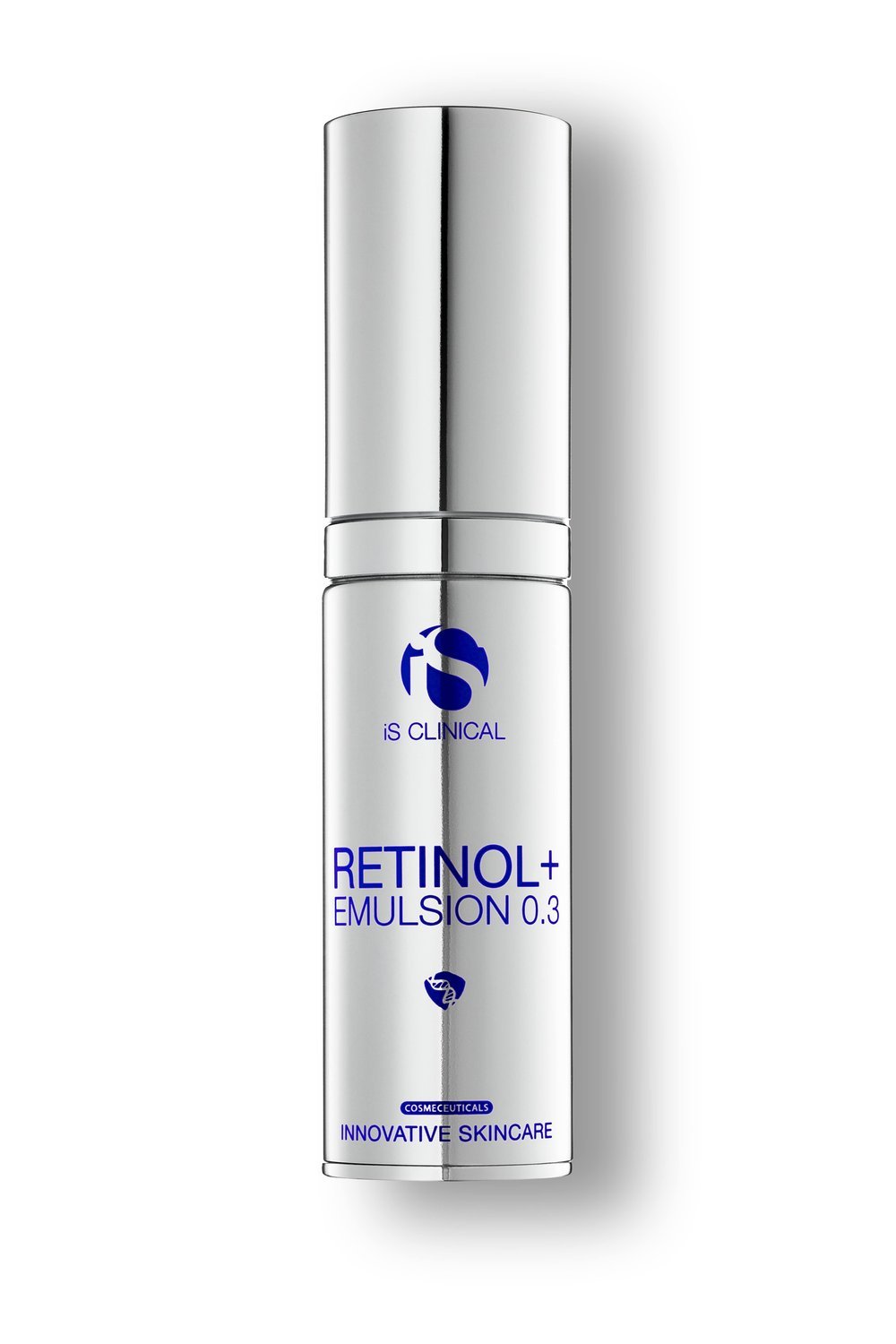Retinol for Beginners: How to Start Using Retinol Without Irritation
Retinol is hands down the most asked-about ingredient at JE'DERM skin atelier. While it's considered the gold standard for anti-aging and acne, with decades of research backing its effectiveness, it's also the ingredient that intimidates people most. Will it make my skin peel? How do I know which strength to use? Can I really use it without turning red and flaky?
But hear us out: most of us can and should use retinol or other forms of vitamin A. We just need to remember that we all have unique skin, and what works beautifully for your girlfriend might not work for you. This is especially true when it comes to retinol.
The key to success isn't just choosing the right product but introducing it properly so your skin can adapt without the irritation that makes so many people give up too soon.
What is retinol?
Retinol is a form of vitamin A that you can purchase over the counter, as opposed to prescription-strength retinoids like tretinoin that require a dermatologist's approval. Once applied to the skin, retinol converts into retinoic acid, the active form that delivers multiple benefits.
While retinol might not be as potent as its prescription relative, there's plenty of scientific evidence to prove that it works just as well. You don't need to use a prescription form to see benefits. And here's a great advantage: most over-the-counter retinol products include other supporting ingredients like hyaluronic acid, peptides, and antioxidants.
These additions make the formula more well-rounded and beneficial for your skin, often with less irritation than you'd experience with a prescription retinoid alone. Vitamin A is one of the most important vitamins for the skin to stay healthy, and we should be using it in some form every day.
What does retinol help treat?
Retinol is a true multitasker, addressing multiple skin concerns at once:
Reduces fine lines and wrinkles: Retinol stimulates collagen production deep in the skin, which helps plump and smooth the appearance of lines over time.
Fades dark spots and hyperpigmentation: By accelerating cell turnover, retinol helps shed damaged skin cells and reveal fresher, more evenly toned skin underneath. It's highly effective for sun spots, age spots, and post-inflammatory hyperpigmentation.
Improves skin texture: If your skin feels rough or uneven, retinol refines the surface by speeding up natural exfoliation and encouraging healthy new skin cells.
Treats acne and prevents breakouts: Retinol helps unclog pores by keeping dead skin cells from building up and mixing with oil. It also helps regulate oil production, making it effective for both active breakouts and prevention.
Minimizes acne scars: While retinol won't eliminate deep, pitted scars on its own, it can improve their appearance over time by promoting collagen remodeling.
Why Fall and Winter Are the Best Time to Start Retinol
If you've been on the fence about starting retinol, now is the perfect time. Fall and winter offer ideal conditions for introducing this active ingredient.
During these cooler months, UV exposure is naturally lower. Since retinol increases cell turnover and can make your skin more sensitive to the sun, starting in fall or winter reduces your risk of sun damage while your skin adjusts. By the time spring arrives, your skin will be accustomed to retinol, and you'll be reaping the benefits.
This doesn't mean you can skip sunscreen. You absolutely cannot. But starting retinol when the sun is less aggressive gives your skin a better chance to adapt without added stress. And by the time spring comes along, your skin will be adjusted, and with nightly use and proper daily SPF, you can continue using retinol year-round. This consistent approach will give you much more visible and longer-lasting results.
Related: Post-Summer Skincare: Best Skin Care Treatments for Fall
Things beginners need to know about starting out with retinol
Start Slow and Be Patient
This is the most important rule. Your skin needs time to build tolerance to retinol. Start by using retinol just once or twice a week at night on clean, completely dry skin. After a few weeks, if your skin is tolerating it well, gradually increase to every other night, and eventually to nightly use if your skin can handle it.
As for results, patience is essential. You might notice some initial glow within a few weeks, but the real anti-aging benefits like reducing fine lines, boosting collagen, and fading dark spots take time. Expect to wait at least 12 weeks before seeing significant improvement. Retinol is a long game, not a quick fix.
Pay attention to strength in your product
Don't assume that higher percentages are always better. A well-formulated 0.3% retinol with supportive ingredients can be just as effective and far more comfortable than jumping straight to 1%. Encapsulated or time-release formulations deliver the active ingredient more gradually, which can significantly reduce irritation.
It's also worth noting that not all brands measure vitamin A in percentages. Some very effective formulations measure it in IU (International Units), which reflects biological activity across different forms of vitamin A. Don't dismiss a product just because you don't see a percentage listed. Our favorite brand, Environ, is the leading brand in vitamin A introduction, maintenance, and improvement, and they use IU measurements.
Smart Timing with Other Products and Treatments
When you're a beginner, don't use acid exfoliators (like glycolic acid, lactic acid, or salicylic acid) on the same night as retinol. Both are active ingredients that increase cell turnover, and layering them together can overwhelm your skin. Instead, alternate nights.
If you're planning a facial or advanced treatment like a chemical peel or lasers, stop using retinol three to five days before your appointment. After your treatment, wait at least three to five days before reintroducing retinol, and always follow the aftercare instructions your esthetician provides.
When to use retinol in your daily routine
Retinol should always be used at night. It breaks down in sunlight and can make your skin more sensitive to UV damage. Here's the correct nighttime order:
Cleanse thoroughly
Wait until skin is completely dry
Apply pea-sized amount of retinol
Follow with moisturizer
Eye cream if you use one
In the morning, focus on hydration, antioxidants, and most importantly, broad spectrum sunscreen with SPF 30 or higher. This is non-negotiable when using retinol.
What to Do If You Experience Irritation
Some irritation is normal when starting retinol. Mild dryness, flaking, or redness in the first few weeks is common as your skin adjusts. Please don't give up. Here's how to manage it:
Reduce frequency: Pull back to once or twice a week until your skin calms down.
Buffer with moisturizer: Apply moisturizer first, let it absorb, then apply retinol on top. This reduces irritation without sacrificing effectiveness.
Hydrate and soothe: Use a gentle moisturizer with ceramides, hyaluronic acid, or squalane to support your skin barrier.
Skip a few nights if needed: If your skin is angry, take a break and start again more slowly.
Protect with SPF: Sunscreen is essential while using retinol.
If irritation persists beyond the first month or becomes severe, stop using the product and consult with a skincare professional.
Related: How to Use Retinol for the Best Results
Our beginner retinol product recommendations
Environ Vita-Antioxidant AVST Step-Up Moisturizers 1-5
If you want a gentler introduction to vitamin A, the Environ AVST system is excellent. Environ AVST 1 is the starting level in a step-up program that gradually increases vitamin A concentration as your skin builds tolerance. This moisturizer combines low levels of retinyl palmitate and retinyl acetate with antioxidants like vitamins C and E. It's perfect for sensitive skin or anyone nervous about traditional retinol and it’s a perfect foundation when you are new to using Vitamin A.
iS Clinical Retinol+ Emulsion 0.3
The iS Clinical Retinol+ Emulsion is one of our favorites for clients starting their retinol journey. The 0.3% concentration is strong enough to be effective but gentle enough for most skin types. The formula includes bakuchiol, vitamin E, and bisabolol to calm and protect the skin. It's lightweight, absorbs quickly, and clients love how their skin looks smoother and brighter within weeks.
Environ C-Quence Step-Up Serums 1–4 Plus
Formulated with a high concentration of vitamin A, Environ's C-Quence formulas help normalize the appearance of skin abnormalities and damage, and promote healthy-looking skin. Use two to four bottles per step before progressing to the next level.
Related: The Best Serums for Your Skincare Routine
Alternatives to retinol if you have a contraindication
Retinol isn't right for everyone. If you're pregnant, breastfeeding, or have a medical reason to avoid retinoids, there are effective alternatives:
Bakuchiol: This plant-based ingredient delivers similar benefits to retinol without the irritation or photosensitivity. It's safe for pregnancy and works well for sensitive skin.
Peptides: These support collagen and elastin production. Products like our Tri-Peptide Complex Avance Elixir serum are excellent choices.
Alpha Hydroxy Acids (AHAs): Ingredients like glycolic acid and lactic acid exfoliate, improve texture, and promote cell turnover.
Vitamin C: A potent antioxidant that brightens, protects, and supports collagen production.
Related: Is Vitamin C the Holy Grail of Skincare? Unveiling the Truth
JE’DERM skin atelier helps you reach your skincare goals with personalized recommendations!
Starting retinol doesn't have to be scary or complicated. With the right product, the right approach, and patience, you can experience all the benefits: smoother texture, fewer fine lines, clearer pores, and brighter skin.
At JE'DERM skin atelier, we believe in personalized skincare. What works for your friend might not work for you, and that's okay. We take the time to understand your skin, your concerns, and your goals so we can recommend the retinol product and routine that's right for you.
Ready to start your retinol journey? Book a consultation or shop our retinol products and let's create a plan that works for you.


